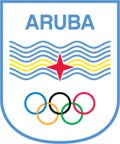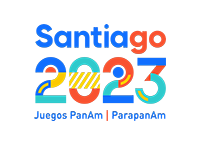Anti-Doping Rule Violations (ADRV)
As the National Anti-Doping Organization, The Aruba Anti-Doping Commission is responsible for charging athletes or athlete support personnel who have committed an ADRV, which the athlete or support personnel can either accept or challenge through an established legal process. This process is outlined in the Results Management section of this website.
Article 2 of The Code specifies the circumstances and conduct which constitute anti-doping rule violations. Athletes or other Persons shall be responsible for knowing what constitutes an anti-doping rule violation and the substances and methods which have been included on the Prohibited List.
The following constitute anti-doping rule violations:
- Presence of a Prohibited Substance or its Metabolites or Markers in an Athlete’s Sample.
- Use or Attempted Use by an Athlete of a Prohibited Substance or a Prohibited Method.
- Evading, Refusing or Failing to Submit to Sample Collection.
- Whereabouts Failures.
- Tampering or Attempted Tampering with any part of Doping Control.
- Possession of a Prohibited Substance or a Prohibited Method.
- Trafficking or Attempted Trafficking in any Prohibited Substance or Prohibited Method.
- Administration or Attempted Administration to any Athlete In-Competition of any Prohibited Substance or Prohibited Method, or Administration or Attempted Administration to any Athlete Out-of-Competition of any Prohibited Substance or any Prohibited Method that is prohibited Out-of-Competition.
- Complicity.
- Prohibited Association.
- Acts by an Athlete or Other Person to Discourage or Retaliate Against Reporting to Authorities.
Current Sanctions
Under the World Anti-Doping Code all Anti-Doping Rule Violations (ADRVs) must be published. This section lists all persons from Aruba currently serving an ADRV.
| Last name | First name | Nationality | Sport & Discipline | Suspension dates | |
| 1 | |||||
| 2 |
All international Athlete Support Personnel currently serving, or who have served a ban over the last six years, can be found in the World Anti-Doping Agency (WADA) Prohibited Association List.
Report doping in sport
If you’re concerned doping may be taking place, you can share your concerns, however small they seem, in confidence here.
Prohibited Association
What is “Prohibited Association”?
“Prohibited Association” is one of the 10 Anti-Doping Rule Violations provided for in the World Anti-Doping Code (‘the Code’). The Prohibited Association Rule therefore applies to any sport that has Code-compliant rules.
If you know that someone is serving an anti-doping ban, and you associate with that person in a “professional or sport-related capacity”, then you are at a real risk of violating the Prohibited Association Rule, and could face up to a two-year ban from all sport if this is your first violation.
Some examples of the types of association that are prohibited under this rule are:
- Receiving coaching;
- Receiving training;
- Obtaining advice regarding strategy or technique;
- Obtaining medical advice or treatment; OR
- Obtaining nutritional advice,
from any person currently serving a ban. This is not an exhaustive list of activities that may be caught by the Prohibited Association Rule. If you are unsure of what type of association with a banned person is and is not prohibited, please The Aruba Anti-Doping Commission.
Please be aware that even if you are receiving free coaching, advice or training etc., it can still be caught by the Prohibited Association Rule. Payment is not necessary for the Rule to be broken.
It is important for you, everyone in your team and those closest to you, such as your coach, trainer, physio, doctor and family members, to be aware of this rule.
The reason why someone has been banned is irrelevant in applying the Prohibited Association Rule; it applies to any person currently serving a ban, regardless of the anti-doping rule that person has violated. See scenario 1 below as an example.
If someone in your team is working with a banned Athlete Support Person, does this put you at risk?
Possibly.
It will depend on the circumstances. If you are unsure, please contact The Aruba Anti-Doping Commission. See scenario 2 below as an example.
Scenario 1
John is a football coach for a club that is subject to the World Anti-Doping Code (‘the Code’). He is also a competitive triathlete who signs up for professional races from time to time, the rules for which also require him to comply with the Code. After competing in a race one weekend, John is required to provide a urine sample for anti-doping purposes. His test comes back positive for metandienone, an anabolic steroid. John is found to have committed an anti-doping rule violation and is banned from all sport for four years. As a result of his ban, not only is John prohibited from racing in any events that apply Code-compliant rules, he can also no longer coach in football. That is, John is banned from being involved in any way – be it as an Athlete or an Athlete Support Person (as defined in the UK ADR or Code) – in any sport governed by Code-compliant rules. Any Athlete that associates with John during his ban in any prohibited way e.g. by receiving coaching from him, would be at risk of breaching the Prohibited Association Rule and so being banned from sport.
Scenario 2
You are aware that your coach is getting medical advice on your behalf from a doctor that is currently serving an anti-doping ban. You know that the doctor is currently serving a ban handed down by UKAD, as you have checked the current sanctions list on the UKAD website. You decide it’s not an issue for you because you have nothing to do with the doctor yourself. You therefore continue to accept the doctor’s advice, as obtained and provided to you by your coach. You are at a real risk of committing an anti-doping rule violation in this instance. The fact that you personally have no direct contact or relationship with the doctor is irrelevant: you know that the doctor is banned and you are receiving assistance from him in a sports capacity. You should cease any and all association with the doctor immediately. You should also report the activities of the doctor and your coach to UKAD.
Have you been given notice of a person’s banned status?
Associating with a person who is currently serving an anti-doping ban puts you at a real risk of breaching the Prohibited Association Rule (and consequently facing a ban from all sport for a significant period of time).
However, before an Anti-Doping Organization (such as The Aruba Anti-Doping Commission) can charge you with a breach of the Prohibited Association Rule, the following two conditions must be satisfied:
- you must have been given a written notice of the person’s banned status and the potential consequences of prohibited association by any of the following: i) your sport’s national governing body, ii) The Aruba Anti-Doping Commission, iii) WADA, or iv) another Anti-Doping Organization with jurisdiction over you (such as the International Federation for your sport or, if you are competing in another country, the national anti-doping organization in that country); AND
- after receiving the above notice, you must have continued to associate with the banned person in a professional or sport-related capacity.
Important note: even if you cannot be charged with a violation of the Prohibited Association Rule, for example, because you have not received written notice as above, your association with a banned person may still be putting you at a significant risk of committing one of the other nine ADRVs provided for in the Code. Such association also jeopardizes your reputation as a clean athlete.
WADA’s Prohibited Association List
WADA maintains a global list of Athlete Support Personnel who are currently serving a ban and who are therefore disqualified from working with Athletes and other persons subject to the Code. This list is designed to assist Athletes in making sure that they do not associate with anyone that may induce them (knowingly or unknowingly) to break the rules. The list is updated quarterly and is available on the WADA website here.
The WADA Prohibited Association List is the best places to start if you are concerned that you may be associating with a banned person. However, please be aware Anti-Doping Organizations recognizes and enforces bans that are imposed by other Anti-Doping Organizations.
This note is intended as guidance only and does not modify, supersede or replace any particular anti-doping rules. The terms of any applicable rules should be referred to for the definitive position.

